A few years ago the American company I worked for sent me on a management course which was a predictable exercise in the fascism of extroversion run by morally nihilistic extroverts telling me to be extroverted. I wrote software. Software writers are supposed to be introverts – otherwise we're really not going to be happy sat at our desk on our own all day. But I guess the course had some effect on me because that's when I realised I really wasn't happy about it. So I quit, which probably wasn't the result they were expecting, although perhaps it's just as well because
later they sent my boss to jail. While extroverts might run the world but they can be as dumb as rocks in dealing with introverts. I'd set up an Introverts United support group to help raise awareness of our plight, except I wouldn't want to go to the meetings.
So I'm not really an extrovert at heart, but my life in Korea has often been more extroverted, and when
Busan e-FM asked me to do a review of my year for the weekly segment I appear in on the station, I was reminded looking through this blog of just how much I got out in the first half of the year, and just how little in the second half due to my wife's advanced pregnancy and the subsequent
birth of my son. Our social life inevitably collapsed, and until I met the small group of friends I belong to just before Christmas – yes, this is Korea and it really is a formal group with a name, its own homepage and message forums – I hadn't seen some of them for months.
Which means when I started thinking about what I would talk about on the radio last week, one of the many thoughts which occurred to me as I was forced through the process of putting the year into perspective was that my life had changed from that of a resident tourist eager to experience different places and events, to something more akin to that of a resident – working, commuting, and going out for functional rather than pleasurable reasons.
It's said that the first 100 days of a baby's life can be the toughest for the parents, and I believe I can attest to that. Our son was sick over the Christmas period turning an already difficult introduction to the world of parenting into a marathon sleep-deprived endurance test at a time when I was already very busy with other work. One of the things I never expected about writing a blog was the steady stream of email messages it would provoke. Unfortunately I've had to neglect them over the last week so I'm sorry to anyone who thought I was ignoring them.
This blog has inevitably suffered through a lack of time, and also because I've found that trying to write on five hours sleep a night with a baby screaming in the background is not particularly conducive to the writing process, for me at least.
I said on Busan e-FM on Wednesday that this might be my last year in Korea. My heart isn't really in the language studying process and while I'm putting some of the hours in I find I'm not absorbing it terribly well. Tim, the host of
Inside Out Busan, told me that according to research Korean apparently requires around 4,000 hours to gain competency – that's around two years of treating it like a full-time job, an admittedly predictable statistic which I nevertheless find rather discouraging. And yet for me, studying Korean piecemeal – a little here and there – never develops its own momentum with the result that I don't feel like I'm seeing a return on my investment.
I don't want to end up being one of those foreigners who has been here for several years and still relies on their wife to do things, so as much as I actually like Korea, if I can't function independently here I think it's time to move on. In my life I've co-founded three businesses, been the elected representative of 9,000 people, and done work I found important that rewarded me in kind. None of it is terribly important to anyone else but it mattered to me. From that I've become a kind of non-person in Korea that struggles with something as simple as buying tea for a Christmas present in a department store boutique. When people talk about culture shock it's usually the food and the environment they are referring to, but to my mind there's a culture or psychological shock that comes with transitioning from being a highly organised problem solver to an environment where I am constantly the problem that others have to solve.
After the psyche-profile of my
now annual Korean medical revealed some numerically high results, they wrote me a rather depressing letter telling me I was depressed, but not clinically so, which was nothing I couldn't have told them myself – it often goes with the territory when you have
Meniere's Disease anyway. But given the high numbers of Koreans
suffering from stress and unhappiness I took this as a rather positive sign that despite my language difficulties I am gradually becoming more integrated into Korean society. Perhaps things are already looking up.
I didn't write much on my blog last year because I was too busy. I'm still busy, but while I'm not a manic self-publicist and never really cared whether anyone read my blog or what anyone thought about me because of it, I do care about writing it, so as I looked back over it at the end of last year as necessitated by Busan e-FM's request, I was sad that I hadn't really kept it more up to date. I have a huge backlog of outline notes I've made over the months that I intended to write up as posts and never got around to. So this year I might write more. Certainly, I'm going to tackle some of those topics I never quite got around to, which means that the chronological narrative – if there ever truly was one – might be a little off. But I'm writing them anyway, because this is another year I intend to plough on regardless in the face of chaos, confusion and sheer indifference. That was the year that was, and this is the year that will be.
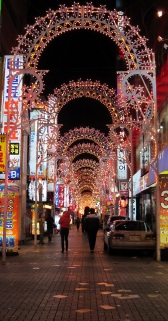 On this day exactly one year ago I scribbled down my Personal Goal for 2010. I refuse to call it a “New Years Resolution” since that sounds more to me like a wish for some genie in a lamp. It also has proven just as effective. I will lose 20 pounds. I will work out every single day. I will stop eating sugar and/or carbs. I will hang up my clothes instead of flinging them all over my room. Yeah right.
On this day exactly one year ago I scribbled down my Personal Goal for 2010. I refuse to call it a “New Years Resolution” since that sounds more to me like a wish for some genie in a lamp. It also has proven just as effective. I will lose 20 pounds. I will work out every single day. I will stop eating sugar and/or carbs. I will hang up my clothes instead of flinging them all over my room. Yeah right.
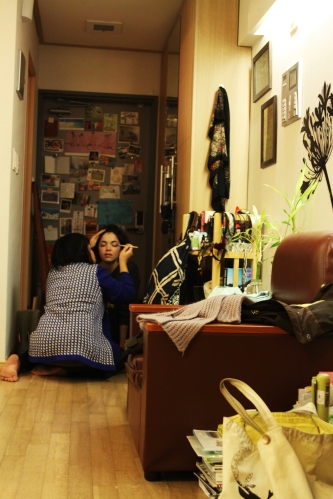

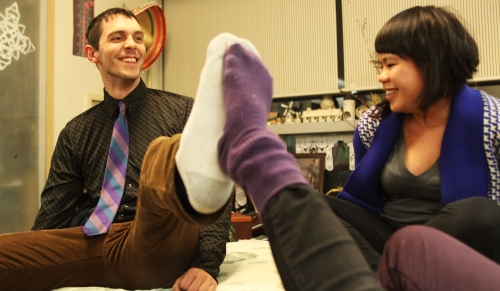




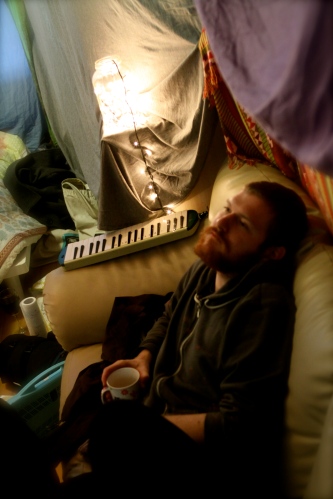

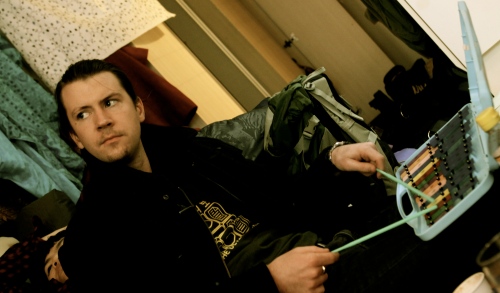

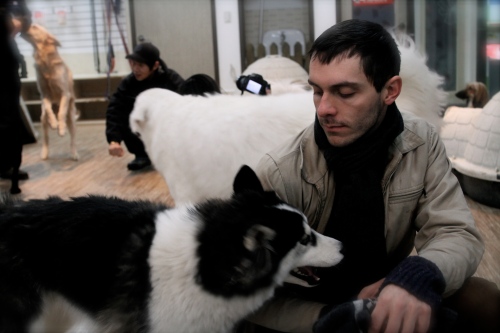
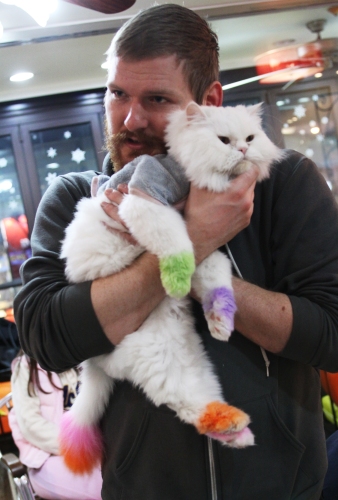
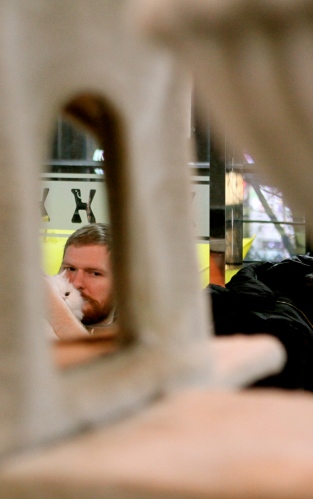

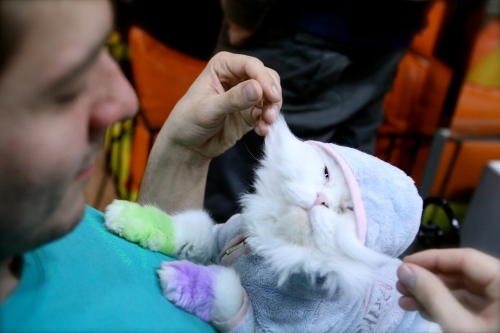

 Colum Lynch fears
Colum Lynch fears 
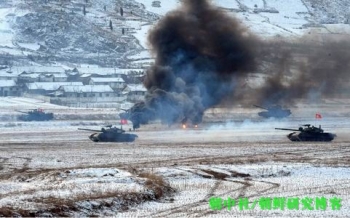 Pyongyang, in the 2011 joint editorial of its three leading newspapers, Rodong Sinmun, Joson Inmingun and Chongnyon Jonwi, somehow pulled off the rhetorical skill to be both belligerent and, at least for North Korea, reassuring – if warning of “nuclear holocaust” sounds peaceful. (
Pyongyang, in the 2011 joint editorial of its three leading newspapers, Rodong Sinmun, Joson Inmingun and Chongnyon Jonwi, somehow pulled off the rhetorical skill to be both belligerent and, at least for North Korea, reassuring – if warning of “nuclear holocaust” sounds peaceful. (
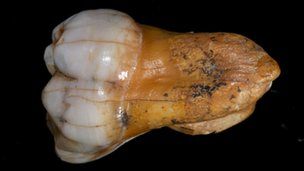 Props to
Props to 
 Via
Via 

Recent comments